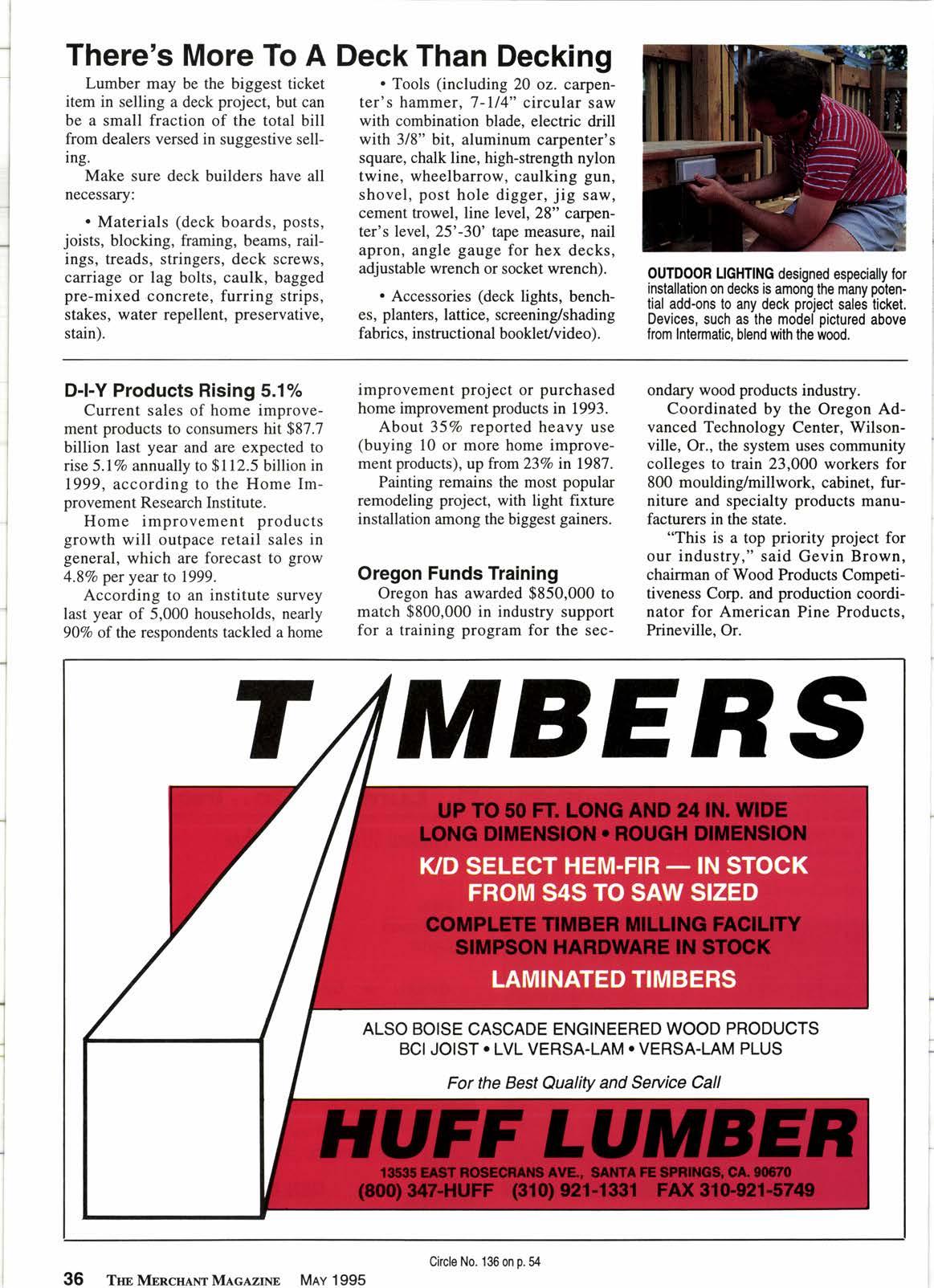
3 minute read
The.ch-arge fgr private label credit cards
EtOR RETAILERS, private
label I-' credit cards have their privileges: custom cardholders shop at your store more often, spend more per visit, have a better opinion of your store, and receive monthly communications from you.
But for home centers. the advantages are even more dramatic. According to a survey by G.E. Capital, while cardholders spend $21.90 more per visit at deparr ment stores than non-cardholders, they spend $89.30 more per visit at home improvement f stores and $266 more annually.
While some retailers run their programs themselves, there are specialized companies that handle everything for them, including credit, collections, customer service, statement and plastic processing, and marketing services. Such companies formulate a program custom designed to reflect the image of your store and include payment programs that meet your and your customers' needs.
David Kratoville, National City Card Services, which last year began a card program for Wickes Lumber Co., said, "I think very highly of the home center industry credit card customer. In most cases, it is a stable customer, who's a homeowner or business owner and tends to buy things that hold their value over time. In the electronics or apparel industry, it's a younger buyer who wants trendy or faddy items, the latest stereo or a different cut of blue jeans. You don't run out and buy a lawn mower each year when the new models come out. They are credit-worthy customers
Advantages of Private
e Provides a line of credit for purchases made only in the retailer's store.
r Increases a customer's buying power, making large purchases affordable.
o Offers the convenience of an alternative means of payment.
r Improves a customer's perception of the store.
who make good-sized purchases."
Payment terms on private label cards are comparable to Mastercard's and Visa's, but the interest rates are a little higher because: (l) the average balance on a bank card is $1,500 to $5,000; the retail card averages $150 to $800, resulting in a smaller b al anc e.
of money," said Kevin Doyle, Shoppers Charge. "Try giving a percentage off at the point-of-sale. Or deferred billing, special events for cardholders or frequent buyer points towards free gifts or discounts. Set up a little table and hand out bottles of Coca-Cola to those who sign up. That costs next to nothing."
When Wickes Lumber began its program, employees were the first ones to receive the new cards. allowing them to experience the program first-hand, so they could . provide personal testimonies to . customers.
And, (2) custom cards have distinctly higher approval rates and loan loss rates.
"The program itself is much like handling Mastercard and Visa," Kratoville said. "The only real difference is that for private label cards the store has to be involved in opening up accounts and getting applications to us."
Perhaps the most simple technique is the "take-one" application. On their own initiative, customers pick one up from a literature holder, fill the card out and send it postage-paid to the credit card company.
Recruitment efforts are more effective when the retailers offer incentives to sign up. "If you truly believe that the program will increase customer loyalty, store traffic and sales, you should be willing to spend a little bit
Label Credit Cards
r Creates new opportunities for marketing directly to the customer base.
r Produces regular contact with customers through monthly statements.
o Provides detailed marketing information about customers and their spending habits; allows the retailer to identify and know who is the customer.
. Unfortunately for the small business owners, private label .i card firms prefer to deal with larger home centers. The card companies earn a percentage on each charge, so the fewer and smaller the purchases, the less money they make. "Probably only about the top 50 home centers really qualify for our program," said National City's Kmtoville. "Our reason for being in business is we want to lend money, and we find it best to do it in chunks of $5 million. So, we want to do business with those with $100 million or more in annual sales volume."
"Typically we want stores that have $5 million to $100 million in annual sales," said Shoppers Charge's Doyle. "But there are companies that do it themselves. There are a lot of credit management system software packages available. It just works better if they leave it to experts. Plus, they save all the money and time."
But, no matter what, he said, check out the possibility of your own card. Notes Doyle: "If you walk into a mall and the only credit card you have is for J.C. Penney's, the first store you would walk into would be J.C. Penney's."
Story at a Glance
Introducing your own private label credit card ... how big do you have to be?










